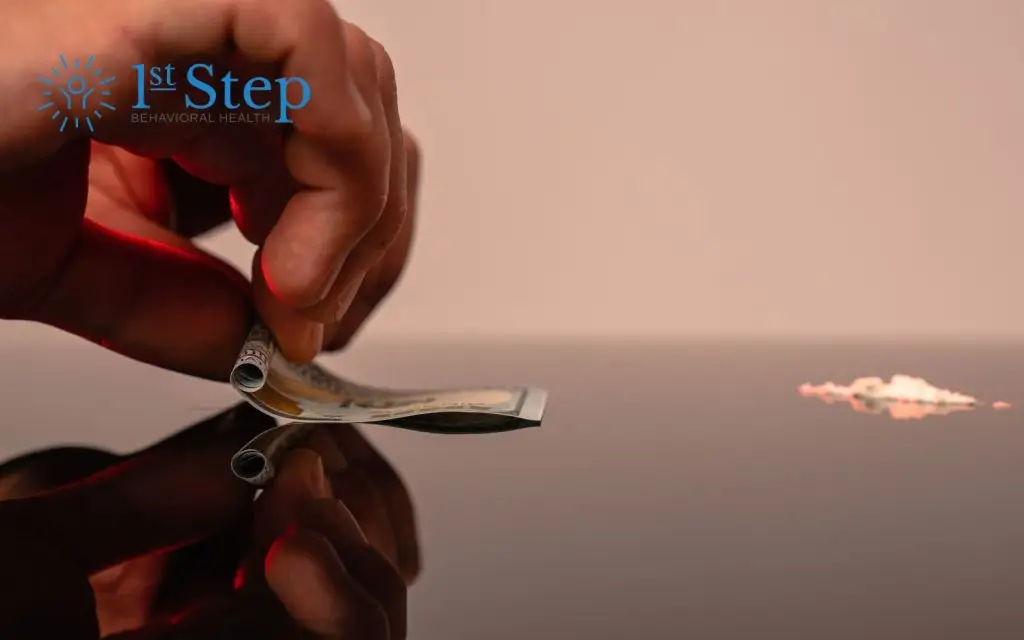Heroin is a highly addictive and illegal opioid drug made from morphine, which is derived from the seeds of certain poppy plants. It’s typically sold as a white or brown powder or as a sticky, black substance known as “black tar heroin.” People usually inject, snort, or smoke heroin, and it creates a rush of euphoria by affecting the brain’s reward system.
Heroin is one drug that carries a lot of stigma and misinformation. Many people believe that people who use heroin inject it. Although this is true for some users, heroin can also be smoked or snorted.
Heroin users may perceive smoking or snorting heroin as less dangerous than injecting it, but this is not the case. Using heroin in any way can lead to dependency, overdose, and a range of health issues, including infections, and respiratory problems.
This article explores the dangers of snorting heroin. You will learn:
- How snorting heroin affects the body
- The risks and dangers
- Signs of a heroin overdose
- How to find help
If you or a loved one are struggling with heroin addiction and need assistance getting treatment, please reach out to us today!
The Physical & Mental Effects of Snorting Heroin
Snorting heroin delivers the drug through the nasal passages, where it’s absorbed into the bloodstream and carried to the brain. This method produces a high more slowly than injecting, but effects can still appear within a few minutes.
Side effects of heroin include:
- Euphoria and drowsiness
- Slowed breathing
- Nausea and vomiting
- Dry mouth
- Severe itching
- Confusion or mental clouding
- Constricted pupils
- Slowed heart rate
- Loss of appetite
- Constipation
- Risk of infectious diseases (if shared straws or other equipment is used)
- Lung complications
- Risk of overdose
Like other opioids, heroin works by binding to opioid receptors in the brain. It blocks pain signals and produces feelings of euphoria that affect the brain’s reward pathway. The pleasurable effects of heroin are what make it so addictive.
The Dangers of Snorting Heroin
Snorting heroin is just as dangerous as other methods of use. Repeated snorting damages the nasal tissues, potentially leading to nosebleeds, sores, infections, and even a collapsed septum. Snorting can also lead to respiratory issues, such as chronic bronchitis, chronic obstructive pulmonary disease (COPD), and other lung infections, as the drug and other particles irritate lung tissue.
Although injection is generally riskier for infections, snorting can still increase the likelihood of disease if equipment is shared. Infections can also occur as a result of contaminants or additives in heroin since it is manufactured and sold on the streets; not regulated by any pharmaceutical body.
Long-term heroin use affects memory, concentration, and overall cognitive function, which can impact daily life and work. Users may feel intense cravings and go through withdrawal symptoms when not using.
Heroin Overdose
Even though snorting may produce a slightly slower high than injecting, it still poses a high risk of overdose. Heroin slows breathing and heart rate, and an overdose can lead to respiratory failure and death.
Symptoms of a heroin overdose are:
- Shallow or stopped breathing
- Slow or absent pulse
- Bluish lips or fingertips (cyanosis)
- Pinpoint pupils
- Weakness or inability to wake up
- Extreme drowsiness or unconsciousness
- Low blood pressure
- Cold, clammy skin
- Gurgling or choking sounds
If you suspect an overdose, call 911 immediately, and administer naloxone (Narcan), if you have it.
Signs Someone is Snorting Heroin
Someone who is using heroin may exhibit physical or behavioral signs, such as runny nose, increased itching, drowsiness, or “nodding off” which means drifting in and out of consciousness due to heroin’s sedative effects.
Additionally, people who snort heroin often use specific items to prepare and inhale the drug. You may find straws, rolled-up bills, or small hollow tubes (like pen cases) used to snort the powder. Razor blades or small cards may be used to create lines of the drug on flat surfaces. Black tar heroin, which is harder to snort, may be diluted in small medical containers like eye droppers.
Powder or residue on personal items like mirrors, credit cards, or clothes can also be a sign of heroin use.
Treatment for Heroin Abuse and Addiction
If you or someone you love are struggling with heroin addiction, quitting as soon as possible can help reduce your risk of serious and life-threatening health problems in the future. At First Step Behavioral Health, we provide evidence-based addiction treatment and comprehensive medical detox services. We focus on the physiological rebalancing of the individual through medical, physical, emotional, mental, and spiritual care.
To learn more about our treatment center or to get started with the admissions process, please contact us today.
References:
- National Institute on Drug Abuse (NIDA): Heroin
- Drug Enforcement Administration (DEA): Heroin
- National Institute of Health (NIH): Changes in injecting versus smoking heroin, fentanyl, and methamphetamine among people who inject drugs in San Diego, California
- Journal of Analytical Toxicology: Pharmacokinetics and Pharmacodynamics of Intranasal “Snorted” Heroin
- Science Direct: Heroin Overdose
Jump to a Section
Call (855) 425-4846
